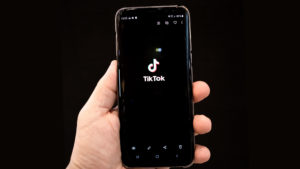Ukraine vs. Russia: A war fiercely fought also in cyberspace

The war between Russia and Ukraine continues with full power. Fierce fighting goes on without a break, particularly in the Ukrainian capital of Kyiv. However, this conflict is not only fought with traditional weapons on the physical battlefield but also online. More than ever, the invasion by Russia also appears to be a cyberwar that extends beyond the borders of the two countries.
Russian hackers attack not only Ukrainian social media accounts but also international websites. Meanwhile, Ukraine is working on defense and has garnered prominent support from cyberactivism group Anonymous. Anonymous is said to already have more than 500 members.
Anonymous in support of Ukraine
Over the past week, the hacker network Anonymus promptly responded to the Russian invasion, declaring cyberwar on Russia via multiple Twitter posts. The notorious hacker group now wants to attack the Russian digital infrastructure. This seems to have worked as planned so far: According to Anonymous, they were able to hack the website of the Russian Ministry of Defense on Friday. In fact, the website has been down ever since, although it’s not clear if Anonymous is really responsible.
The website of the Russian state broadcaster Russia Today (RT News) also crashed on Friday. The hackers tweeted: “Russian state TV channels have been hacked and are broadcasting the reality of what is happening in Ukraine.” Another Anonymous post said: “More than 6 Russian government websites are down.”
The collective’s operations were to be directed primarily against the Russian government, not against the country’s population. However, there could be collateral damage here. It is inevitable, the private sector will also be affected, communicated another tweet.
The Ukrainian government is looking for volunteer hackers
The Ukrainian government is also aware of how important the fight in cyberspace is for the outcome of this conflict. The government has been looking for volunteers in relevant online forums and communities since Thursday (February 24). According to t3n, the forum posts call on hackers and IT security experts to take part in the country’s cyber defense. The focus is on protecting critical infrastructure and working on IT espionage measures against Russian troops. Cyber fighters can apply to the government via Google Docs.
Ukraine is particularly dependent on private cyber experts because the country itself lacks dedicated military IT units. A Ukrainian security official first criticized this in an interview with the Washington Post in early February. However, help should not only come from Anonymous or private individuals. According to t3n, the EU also plans to support Ukraine in defending against cyber attacks.
Russia launches massive cyber offensive
Exactly this defense is also sorely needed because Russia is launching a massive cyber offensive against Ukraine. Hackers recently attacked the Facebook accounts of several public figures in Ukraine, Die Zeit reports. According to Facebook owner Meta, those affected included high-ranking military officials, politicians, and journalists. The attack was due to a group known as Ghostwriters and assigned to Russia. The Ghostwriters are said to be responsible, among other things, for the attack on the German Federal Parlament (the Bundestag) in March 2021.
Meta announced that in the past 48 hours total of around 40 fake accounts, groups, and pages from Facebook and Instagram had been deleted and blocked for “coordinated, inauthentic behavior”. According to information provided by Meta, this network of accounts was also active on other platforms, including YouTube, Twitter, Telegram, and VK.
The US Twitter also blocked more than a dozen accounts from Russia and limited the sharing of various links. All of these actions seem aimed at spreading misinformation about the war and portraying Ukraine as weakened and dysfunctional.
International sites also conflicted
The cyberwar also seems to be showing its face internationally. According to the FAZ, the German Funke Media Group recently became the victim of Internet attacks on its websites. The group includes regional daily newspapers such as the “Berliner Morgenpost”, the “Hamburger Abendblatt” and the “Westdeutsche Allgemeine Zeitung”. The websites of the daily newspapers, magazines and reach portals of the Funke Media Group are currently being attacked by waves of bots that spread pro-Russian propaganda. Similar troubles appeared in the social media channels of the “Frankfurter Rundschau”.
Although the Ukraine war is a “classic” armed military conflict, cyberspace is playing an increasingly important role in such conflicts today. Secret information, infrastructure, and also finances – more and more essential aspects for the armed forces have shifted to the digital space. Cryptocurrencies are also playing an increasingly important role in the war chests. In any case, the current conflict is most likely a foretaste of what warfare on the web will be like in the future.






























